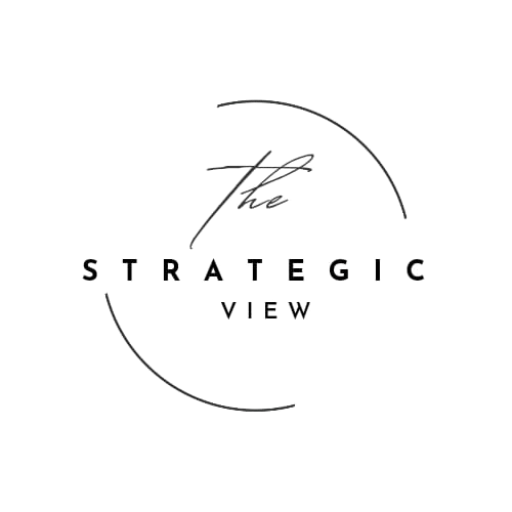Seham ElBehissy, General Manager – Digital & Connected Cars at Renault Middle East shares how rapidly the technology is changing the automotive industry and what our future will be like with cars becoming an integral part of connected & smart living solutions.
El Behissy says, “Voice recognition and personal assistants, combined with the launch of 5G shortly, will connect the vehicle-to-home. Much like mobile phones, we will see operating systems becoming standard for cars. Computing will be the new horsepower, software on wheels and computing power and intelligence will be the new premium.”
COVID-19 changed the world and has certainly left a huge impact on people. We have adopted so many new ways of learning, working, entertaining, procuring things and connecting very differently with our loved ones during this pandemic.
El Behissy states that “Digital caused a culture shift, COVID-19 caused a culture shock – both changed massively not only the buying behaviour but the way we live or interact with others.”
During an interview with The Strategic View in the exclusive series “Digitization: Embedding and Embracing Change”, Seham El Behissy highlighted how they strategized to overcome the challenges, this recent pandemic posed for the industry and the role & importance of technology going forward.
1. What are the key trends in terms of technology and convenience you are witnessing in the automotive sector that are changing the industry?
Voice recognition and personal assistants, combined with the launch of 5G shortly, will connect the vehicle-to-home. Much like mobile phones, we will see operating systems becoming standard for cars. Computing will be the new horsepower, software on wheels and computing power and intelligence will be the new premium.
COVID-19 changed the world and has certainly left a huge impact on people. We have adopted so many new ways of learning, working, entertaining, procuring things and connecting very differently with our loved ones during this pandemic. Digital caused a culture shift, COVID-19 caused a culture shock – both changed massively not only the buying behaviour but the way we live or interact with others.
2. How did you respond to COVID-19? What strategies were in place during the crisis and what are your plans with the rapidly changing environment due to the crisis?
At Renault, our first priority was safety. Safety of our customers, our employees, and all other stakeholders which is why we have been at the forefront of introducing the health SOPs at our factories, offices, network, etc.
We also took different actions to quickly adapt to the “New Normal” of our customers by observing their new fears, needs and expectations and re-think the whole customer journey to deliver a seamless & trusted customer experience journeys to both: our existing and potential customers and Digital CX was pivotal in this strategy.
We at Renault started the digital transformation journey before COVID-19 when we embarked on our roadmap 7 years ago as part of our overall brand relaunch program in the region. We set about to improve the overall brand perception, digitize our services and offer new digital services and coverage. In other words, we were proactive in anticipating the “new normal”.
For example, we launched our Virtual showroom in 2016, by offering live streaming options to sell cars and taking the physical retail showrooms to our customer’s homes and offices. We also launched the region’s first “Home Test Drive” service in 2018. All those “phygital experiences” were implemented using the best in class digital tools and “empathy” was the central force driving them. Just to put it in perspective, by the end of 2019, almost 30% of our Retail sales were generated from Digital!
As for our customer’s service and car ownership, we’ve been offering our one-stop-shop Mobile application, named “MYRenault” since 2013 to make our customer’s life easier and more rewarding. Today more than 92% of our Retail customers in GCC are subscribed and using the MYRenault app to request their services or claim other great deals.
Adding to that, and as part of Renault’s initiatives and efforts to ensure the health, well-being and safety of the community against the spread of the coronavirus (COVID-19), in April this year, we launched our door-to-door “D2D” car service from the MYRenault app. We give our customers the option of “Home pickup & delivery”, so they don’t need to leave their homes. This service comes with Free Sanitization and the whole service is managed remotely with contactless payment options.
I look at this crisis as an opportunity and a momentum of change – to reinvent ourselves, to pursue our clear plan, and to accelerate some actions. Because now is the time to restart and shape the future of mobility or risk this quote coming true. “If you defer investing your time and energy until you see that you need to, chances are it will already be too late.” @Clayton Christensen.
3. How innovative technologies are impacting consumer behaviour and when it comes to your sales & marketing strategy, how are you tapping behavioural changes of consumers and addressing their needs?
Technology is accelerating the transformation of industries, a few years back it used to be said about the banking industry that there will be “Banking everywhere, never at a bank” @Brett King. The same can be said about the automotive industry.
Today due to fear of the virus we are seeing new paradigms like distanced experience, contactless revolution and a rise in low-touch economy solutions that minimize contact with human beings. The automotive is quickly having to learn that digital CX is the way forward and providing a personalized user experience is key. People are accustomed to the UX of Facebook, Amazon, Apple, Netflix, and Google (FAANG) which understands their preferences and shows personalized recommendations. All of that needs to make its way into car sales, digital showrooms, live digital streaming of product launches, usage of AR/VR/XR in the buying experience, Door-to-door car selling or servicing, etc.
Most importantly it’s a great chance to influence the attitudes of consumers toward mobility as most of the people recently experienced clean air in cities due to lockdowns with ecology improving. That is a strong proposition to make them lean toward EVs.
Door to Door (D2D) or Direct-to-customer (D2C) with brands reaching their customers directly and not through any middlemen with their apps, websites and other social channels.
4. What is your take on digital startups who are disrupting the supply chain of the automotive industry?
Digital Startups are disrupting many areas of the car like Amazon Alexa is making its way into the car with its voice tech. Similarly, Garmin with its location data is improving the convenience and the car experience. We at Renault-Nissan-Mitsubishi understand the power of digital startups and to fully leverage their capabilities have launched Alliance Ventures. A new corporate venture capital fund that plans to invest up to $1 billion by 2023 to support open innovation. In the first year, it intends to prioritize new mobility with a $ 200 million initial investment. The fund prioritizes open innovation in the new mobility field, including electric vehicles, self-driving systems, connectivity, and artificial intelligence.
Groupe Renault has also recently made efforts to accelerate the adoption of IR 4.0 and future-proof its digital transformation and innovation with a strategic partnership with Google Cloud to create new industrial solutions leveraging each other’s capabilities and grow its employees’ digital skills and competencies. The partnership will enable us to improve our supply chain manufacturing efficiency, and production quality along with the reduction in environmental impact through energy savings.
Finally, Groupe Renault unveiled last month the new brand-focused reorganization. The four brands Renault, Dacia, Alpine and New Mobility will serve as new business units working as autonomous organizations to make the organization work in an agile and lean way more focused on its customers and markets.
The New Mobility business unit is a signal of the focus on exploring new business models and markets focused around shared and sustainable mobility. Be it car-pooling, car-sharing, ride-sharing and driverless autonomous vehicles.
“The company needs to change its ‘game module’ and move from a search for volume to a search for value and profitability.” according to Luca de Meo, Groupe Renault CEO.
5. Do you think partnerships with disruptive players and with your peers are essential going forward? And what initiatives have you taken as an organization?
Indeed alliances help to leverage each other assets, capabilities, investments, geographies and market positions, and scale advantages to survive difficult times. Renault-Nissan-Mitsubishi alliance is the biggest alliance in the auto industry that gives reference regions to each of the 3 auto manufacturers, e.g. Nissan is the reference for China, North America and Japan; Renault in Europe, Russia, South America and North Africa; Mitsubishi Motors in ASEAN and Oceania. Even about developing different technologies, there can be specializations amongst the auto alliance partners. Referring again to the Renault Nissan Mitsubishi alliance, Nissan takes the lead in developing Autonomous driving, and Renault takes the lead in developing an Android-based platform in Connected-car technologies.
We are huge proponents of Open Innovation as outlined before. I also feel we are living in an age of the Convergence of powerfully connected ecosystems. It doesn’t matter how big or influential a company is today. In an ecosystem created by disruption, auto manufacturers will need to rethink their strategy in the evolving ecosystem, strike strategic partnerships with other players and collaborate in the new ecosystem. Ecosystem means working with alliances involving other OEMs, technology giants, telecommunications companies, start-ups, after-market service providers, and government agencies e.g. working with urban infrastructure bodies etc. Elexent is a new subsidiary of Groupe Renault specializing in charging solutions for businesses with fleets of electric or plug-in hybrid vehicles
6. Connected vehicles, self-driving cars, electric vehicles & further new mobility services, how do you think the industry will look like in the next 3 years?
The automotive industry like other industries is going through a dramatic transformation with new business models, the data revolution, and the rise of autonomous, environmentally sustainable electric vehicles. Moreover, there are new customer journeys, with governments investing in mobility infrastructure.
In the short term, I believe we are going to see new alliances, JVs, structural changes in supply chains, and further consolidations in the auto industry as global economic recovery slackens. We are already seeing new trends like the Rise of Micromobility and more people preferring using cycles in Europe. There is also increased public focus on climate change, shifting environmental regulations, and circular economy and technological advances are making the case for a green-mobility transition and thus for EVs. We could see some delays as we are witnessing record-low oil prices, which have widely eliminated the advantage EVs had for total costs of ownership.
But one thing is for sure the cars of the near future will be also more efficient – electric and have less environmental impact, with no transmission, no exhaust system, no lubricating or extensive cooling systems. Added to the above if wheel motors are introduced, separate braking systems could eventually disappear too.
Additionally, connected cars will open possibilities to make traffic safer, and improve car flow, it will help the driver be safe and talk to the environment and other cars to make the whole ecosystem aware of that vehicle and its actions. Due to COVID-19 people working from home will mean less commuting to the office and a decrease in the role of the car except for being used for the weekends, evening trips and shorter drives.
To summarize, Transportation has shifted from an analogue space focused on getting moved from point A to B, to a Mobility Ecosystem smart, powered and connected in the digital space that focuses on saving lives, time, and money, and maximizing human well-being.
And the road to the Smart & Future Mobility lies in ‘Data as a Fuel & Computing as a horsepower’.

